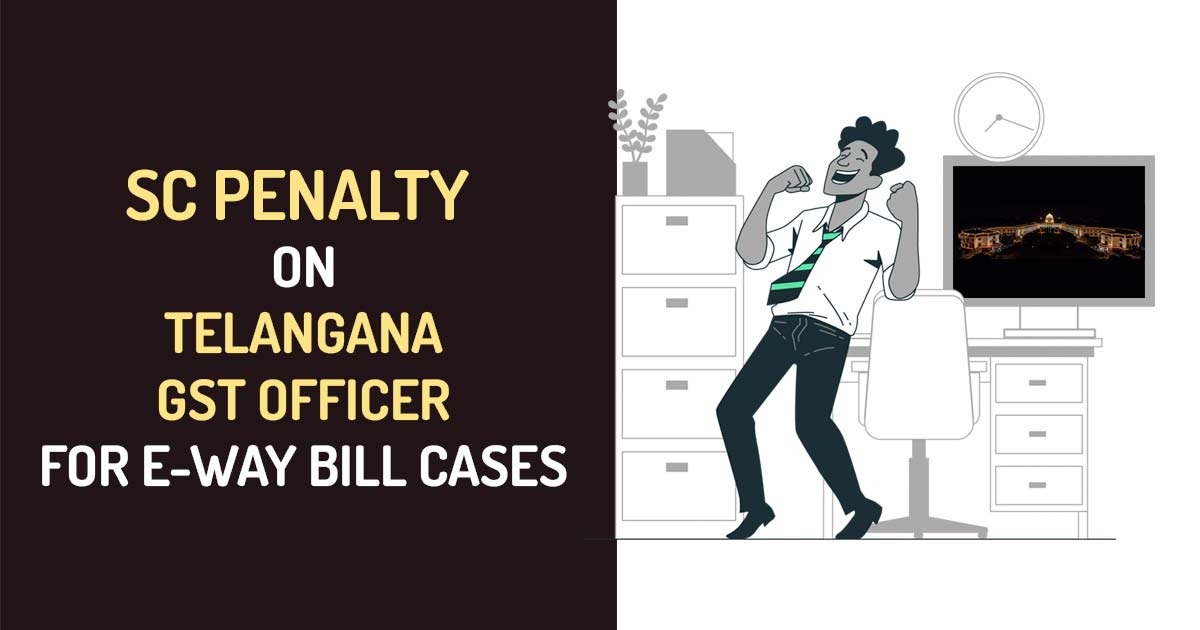
The Supreme court of India surge the fine which was levied by the High court with respect to Telangana state’s GST officer for “unnecessary litigation”.
The same has arrived post to the expiry of the load carriers e-way bill under GST because the carrier has been stuck in Hyderabad’s Basher Bagh area as there was protest action by the anti CAA in January 2020. Mentioned that the same penalty was levied beneath CGST and SGST via council on the charges of the tax theft making the auto trolley driver furnish Rs 69000.
The penalty was set by the High court in June in the former year post the same seems that there was no purpose to theft the taxes. This is a clear indication of illegal violation of Article 14 of the Constitution of India, as there is no rejection by the 2nd respondent (tax officer) of the traffic blockage at Basher Bagh because of the anti CAA and NRC agitation on 4.01.2020 up to 8.30 pm controlling the direction of auto trolley for the goods would have been yielded on that day itself. He indeed did not deny that 04.01.2020 was a Saturday, 05.01.2020 was a Sunday, and the next working day was only 06.01.2020.
The high court has also scolded the tax officer for his misconduct of power. “We are also unable to understand why the goods were kept for safekeeping at Marredpally, Secunderabad in the house of a relative of 2nd respondent for 16 days and not in any other place designated for such safekeeping by the state.” A Rs 10000 fine has been imposed on the tax officer subject to pay to the applicant.
State GST officer approached the Supreme court claiming the tax theft by the writ applicant beneath section 129 of Telangana Goods and Services Tax Act, 2017.
The supreme court before this month upheld the high court’s order and imposed a fine on the tax officer of Rs 59000. Appealing for the “misconceived”, the apex court specified that the same will be qualified to recover the costs post to furnishing the payment to the writ applicant directly from the person(s) subjected towards the unwanted litigation.
The costs provided by the High court are on the lower side. Acknowledging the concern of the applicant’s No 2 we see that it is essential to raise the cost mentioned by the Supreme court.
The supreme court has been said that the state is liable to not furnish the smooth passage of traffic “It has precisely been found that there was no intent on the part of the writ petitioner to evade tax and rather, the goods in question could not be taken to the destination within the time for the reasons beyond the control of the writ petitioner. When the undeniable facts, including the traffic blockage due to agitation, are taken into consideration, the state alone remains responsible for not providing smooth passage of traffic.”